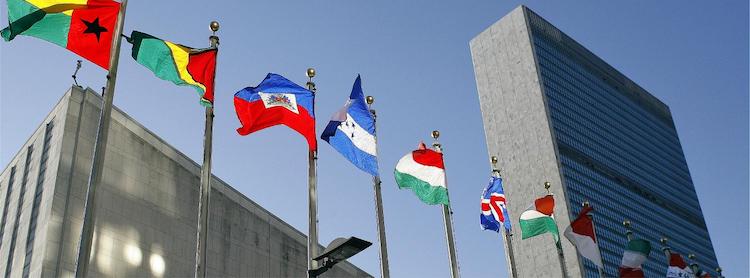By Santo D. Banerjee
NEW YORK (IDN) – “The COVID-19 pandemic is a tragic reminder of how deeply connected we are. The virus knows no borders and is a quintessential global challenge. Combatting it requires us to work together as one human family,” says UN Secretary-General António Guterres on International Day of Multilateralism and Diplomacy for Peace on April 24.
The Day was established on December 12, 2018 through resolution A/RES/73/127 and was first observed on April 24, 2019.
Commitment to multilateralism and international peace and security was also reaffirmed by most world leaders in the General Debate in September 2018. This commitment was also reinforced in the discussion during the High-level Dialogue on Renewing the Commitment to Multilateralism on October 31, 2018.
But, as the UN chief emphasizes, multilateralism is not only a matter of confronting shared threats; it is about seizing common opportunities. “We now have the opportunity to build back better than in the past, aiming at inclusive and sustainable economies and societies.”
It is indeed not enough to proclaim the virtues of multilateralism; there is need to continue to show its added value. “International cooperation must adapt to changing times.”
The UN Secretary-General calls for a “networked multilateralism, strengthening coordination among all global multilateral organizations” with the regional multilateral organisations making their vital contributions.”
Mr. Guterres pleads for an inclusive multilateralism, based on deep interaction with civil society, businesses, local and regional authorities and other stakeholders… where the voice of youth is decisive in shaping our future.
When the United Nations came into being in 1945, following the devastation of the Second World War, its central mission was the maintenance of international peace and security, and the commitment to settle disputes through peaceful means and the determination to save succeeding generations from the scourge of war.
Conflict prevention remains, however, a relatively under-publicized aspect of the UN’s work. Meanwhile, the most efficient and desirable employment of diplomacy is to ease tensions before they result in conflict, or, if conflict breaks out, to act swiftly to contain it and resolve its underlying causes. Preventive diplomacy is very important in supporting United Nations efforts to assist in the peaceful settlement of disputes.
The UN chief adds: “At this key moment for international cooperation, and in this 75th anniversary year of the United Nations, let us strive as one to realize the founders’ vision of a healthy, equitable, peaceful and more sustainable future for all.
He calls for doing everything to save lives and ease the economic and social devastation. “Crucially, we need to draw the appropriate lessons about the vulnerabilities and inequalities the virus has laid bare, and mobilize investments in education, health systems, social protection and resilience.”
This, he says, is the biggest international challenge since the Second World War. Yet even before this test, the world was facing other profound transnational perils – climate change above all.
Preserving the values of multilateralism and international cooperation, which underpin the UN Charter and the 2030 Agenda for Sustainable Development, is fundamental to promote and support the three pillars of the UN: peace and security, development and human rights.
The international norms and rules-based system that have steered nations through seven decades must rise to meet the mounting challenges of protectionism and isolationism.
Global issues such as climate change, geopolitical tensions, humanitarian and migratory crises are cross-cutting, implicating the values and interests of nations and necessitate collective attention and action. Technological advancement has also impacted the political and socio-economic landscape and inter-state relations.
As emphasized in the resolution, the International Day is a reaffirmation of the UN Charter and its principles of resolving disputes among countries through peaceful means. It acknowledges the use of multilateral decision-making and diplomacy in achieving peaceful resolutions to conflicts among nations. [IDN-InDepthNews – 23 April 2020]
Photo: Flags of member states flying at United Nations Headquarters. As the most representative international organization and the utmost expression of multilateralism, the United Nations is the main instrument to address multifaceted and complex global challenges through collective action. © UN Photo/Mark Garten
IDN is flagship agency of the International Press Syndicate.
facebook.com/IDN.GoingDeeper – twitter.com/InDepthNews
![]() Material on this Website is licensed under a Creative Commons Attribution 4.0 International, except for articles that are republished with permission. Readers are welcome to share, remix, tweak, and build upon it non-commercially, as long as they credit it to the author and IDN.
Material on this Website is licensed under a Creative Commons Attribution 4.0 International, except for articles that are republished with permission. Readers are welcome to share, remix, tweak, and build upon it non-commercially, as long as they credit it to the author and IDN.

